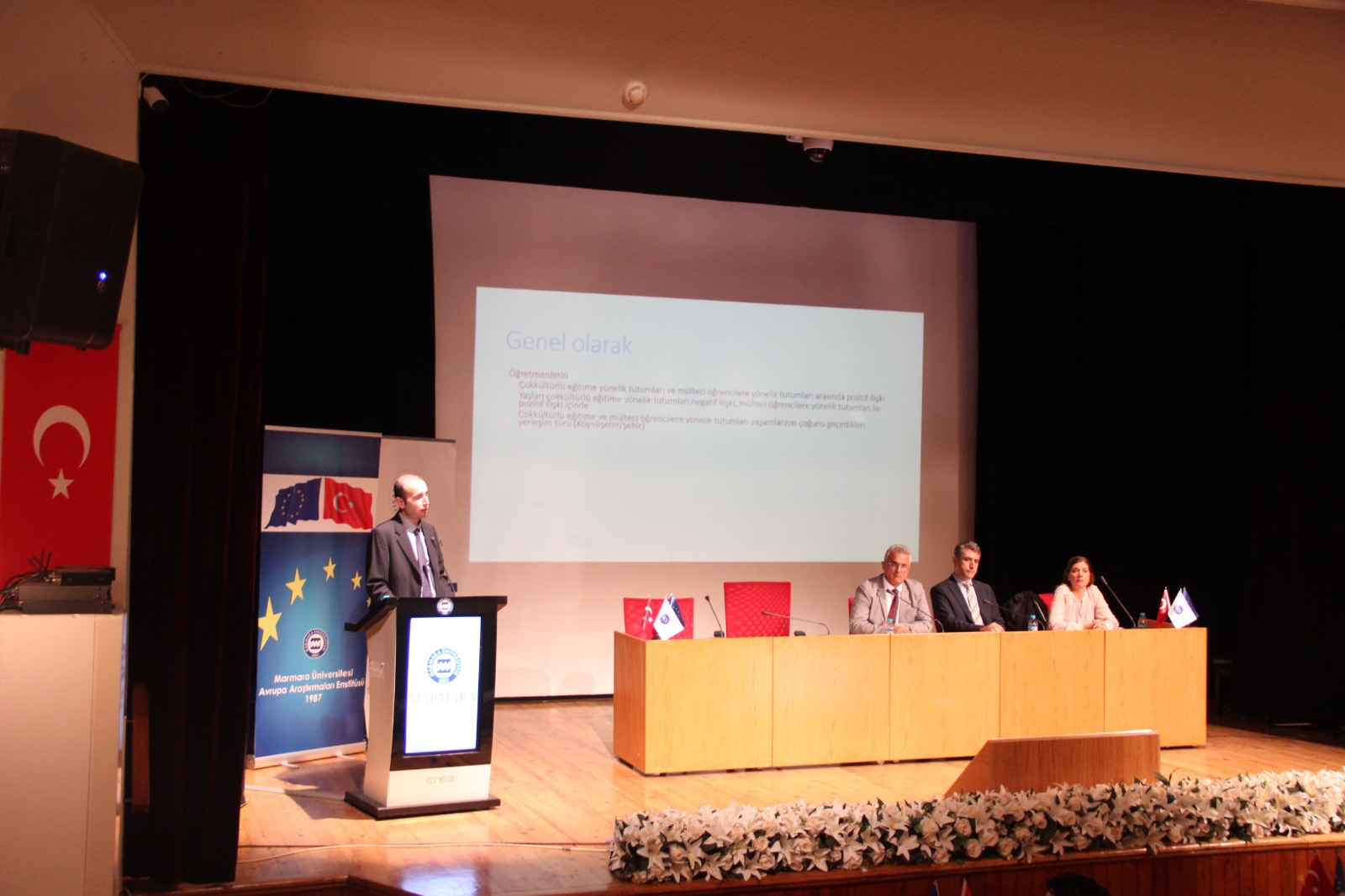In the second session of the conference organized within the scope of Marmara University European Week Activities, the symposium on “The Effects of Migration on Türkiye’s Demographic Structure”, moderated by Prof. Nuri Tınaz, in cooperation with the Institute of Population and Social Research and the Institute of European Studies, was very productive.
In the first part of the session, Prof. Mehmet Fatih Aysan talked about the stages of Türkiye's demographic transformation, the aging of the population, the analysis of national and international migration, its reflections on demography and the effects of demographic transformation on welfare in his speech titled “Türkiye’s Demographic Change and Migration Movements”. Prof. Aysan mentioned the situation of regular and irregular immigrants, the change in the population structure of Europe in the last century, the aging of the world population in recent years, and the dynamics changing in different countries. Referring to the risks and opportunities brought by migration, Aysan stated that the issue of migration will come to the fore more frequently in Europe and the world due to wars, economic crises, and climate change in the coming years.
In the second part of the session with the presentation titled “Labor Migration to Europe and the Changing Attitudes and Perceptions of the State over Time”, Dr. Zeynep Selen Artan talked about the changes in Türkiye’s immigration policy from the 1960s to the present. Dr. Artan mentioned the migration movements starting with the agreement between Türkiye and Germany in 1961 and continued with the agreements made with other European countries. She presented a different perspective to the studies that divide Türkiye’s immigration policy into two periods: before and after the 80s, taking 1980 as a turning point, and before and after 2003, taking 2003 as a turning point. Artan talked about Türkiye’s immigration policies, political attitudes, and legal regulations dating back to the 2000s in her presentation. She touched upon the integration problems of immigrant workers, immigration policies that change from time to time, and the effects of labor immigrants on the country’s economy.
In the last part of the session, Assoc. Prof. Asil Özdoğru discussed the well-being of immigrant children in Türkiye and what needs to be done. Based on the findings of his research, he talked about the integration problems of children and young people of educational age, whose number is more than 1 million according to official data in our country, language deficiency, adaptation problems of immigrants, and the importance of multicultural education. He touched upon UNICEF's reports about migrant children in Türkiye. He emphasized the concept of social harmony in a country like Türkiye, where immigration is intense. Özgoğru completed his presentation by talking about the social experiments and their results conducted on a total of 134 teachers, aged between 22 and 63, covering the 10 provinces with the highest Syrian population in Türkiye.



This page updated by Nüfus ve Sosyal Araştırmalar Enstitüsü on 06.06.2024 09:46:46
